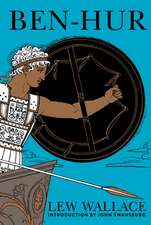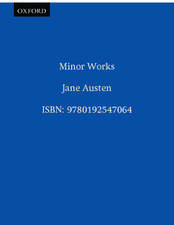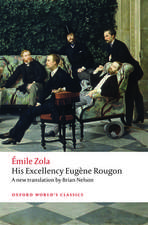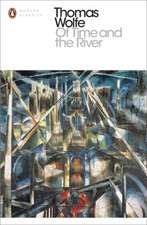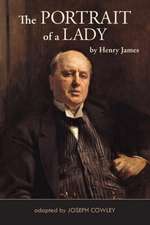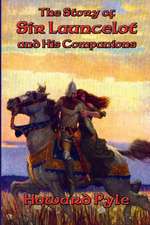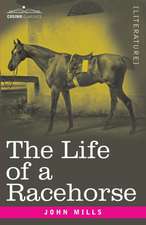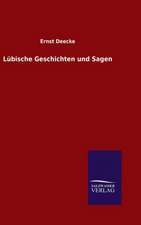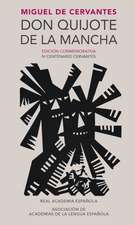The Marble Faun
Autor Nathaniel Hawthorneen Limba Engleză Paperback – 7 noi 2020
| Toate formatele și edițiile | Preț | Express |
|---|---|---|
| Paperback (9) | 54.75 lei 10-16 zile | +21.74 lei 7-13 zile |
| OUP OXFORD – 11 dec 2008 | 54.75 lei 10-16 zile | +21.74 lei 7-13 zile |
| CREATESPACE – | 57.99 lei 3-5 săpt. | |
| CREATESPACE – | 76.79 lei 3-5 săpt. | |
| CREATESPACE – | 98.47 lei 3-5 săpt. | |
| CREATESPACE – | 129.52 lei 3-5 săpt. | |
| – | 130.46 lei 3-5 săpt. | |
| – | 92.78 lei 17-23 zile | |
| Penguin Books – 31 oct 1990 | 122.35 lei 6-8 săpt. | |
| Hansebooks – 7 noi 2020 | 269.26 lei 38-44 zile |
Preț: 269.26 lei
Nou
Puncte Express: 404
Preț estimativ în valută:
51.52€ • 53.93$ • 42.88£
51.52€ • 53.93$ • 42.88£
Carte tipărită la comandă
Livrare economică 25-31 martie
Preluare comenzi: 021 569.72.76
Specificații
ISBN-13: 9783348013086
ISBN-10: 3348013089
Pagini: 532
Dimensiuni: 167 x 216 x 36 mm
Greutate: 0.89 kg
Editura: Hansebooks
ISBN-10: 3348013089
Pagini: 532
Dimensiuni: 167 x 216 x 36 mm
Greutate: 0.89 kg
Editura: Hansebooks
Descriere
Descriere de la o altă ediție sau format:
'any narrative of human action and adventure - whether we call it history or Romance - is certain to be a fragile handiwork, more easily rent than mended'The fragility - and the durability - of human life and art dominate this story of American expatriates in Italy in the mid-nineteenth century. Befriended by Donatello, a young Italian with the classical grace of the 'Marble Faun', Miriam, Hilda, and Kenyon find their pursuit of art taking a sinister turn as Miriam's unhappy past precipitates the present into tragedy.Hawthorne's 'International Novel' dramatizes the confrontation of the Old World and the New and the uncertain relationship between the 'authentic' and the 'fake', in life as in art. The author's evocative descriptions of classic sites made The Marble Faun a favourite guidebook to Rome for Victorian tourists, but this richly ambiguous symbolic romance is also the story of a murder, and a parable of the Fall of Man. As the characters find their civilized existence disrupted by the awful consequences of impulse, Hawthorne leads his readers to question the value of Art and Culture and addresses the great evolutionary debate which was beginning to shake Victorian society. ABOUT THE SERIES: For over 100 years Oxford World's Classics has made available the widest range of literature from around the globe. Each affordable volume reflects Oxford's commitment to scholarship, providing the most accurate text plus a wealth of other valuable features, including expert introductions by leading authorities, helpful notes to clarify the text, up-to-date bibliographies for further study, and much more.
'any narrative of human action and adventure - whether we call it history or Romance - is certain to be a fragile handiwork, more easily rent than mended'The fragility - and the durability - of human life and art dominate this story of American expatriates in Italy in the mid-nineteenth century. Befriended by Donatello, a young Italian with the classical grace of the 'Marble Faun', Miriam, Hilda, and Kenyon find their pursuit of art taking a sinister turn as Miriam's unhappy past precipitates the present into tragedy.Hawthorne's 'International Novel' dramatizes the confrontation of the Old World and the New and the uncertain relationship between the 'authentic' and the 'fake', in life as in art. The author's evocative descriptions of classic sites made The Marble Faun a favourite guidebook to Rome for Victorian tourists, but this richly ambiguous symbolic romance is also the story of a murder, and a parable of the Fall of Man. As the characters find their civilized existence disrupted by the awful consequences of impulse, Hawthorne leads his readers to question the value of Art and Culture and addresses the great evolutionary debate which was beginning to shake Victorian society. ABOUT THE SERIES: For over 100 years Oxford World's Classics has made available the widest range of literature from around the globe. Each affordable volume reflects Oxford's commitment to scholarship, providing the most accurate text plus a wealth of other valuable features, including expert introductions by leading authorities, helpful notes to clarify the text, up-to-date bibliographies for further study, and much more.
Notă biografică
Nathaniel Hawthorne was born on July 4, 1804, in Salem, Massachusetts, the son and grandson of proud New England seafarers. He lived in genteel poverty with his widowed mother and two young sisters in a house filled with Puritan ideals and family pride in a prosperous past. His boyhood was, in most respects, pleasant and normal. In 1825 he was graduated from Bowdoin College, Brunswick, Maine, and he returned to Salem determined to become a writer of short stories. For the next twelve years he was plagued with unhappiness and self-doubts as he struggled to master his craft. He finally secured some small measure of success with the publication of his Twice-Told Tales (1837). His marriage to Sophia Peabody in 1842 was a happy one. The Scarlet Letter (1850), which brought him immediate recognition, was followed by The House of the Seven Gables (1851). After serving four years as the American Consul in Liverpool, England, he traveled in Italy; he returned home to Massachusetts in 1860. Depressed, weary of writing, and failing in health, he died on May 19, 1864, at Plymouth, New Hampshire.

